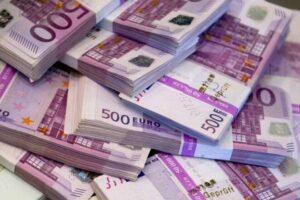
The European Union has fully provided Ukraine with the first tranche in the amount of EUR1 billion of new emergency new macro-financial assistance, said the head of the European Commission, Ursula von der Leyen.
“These funds will help Ukraine meet its urgent financial needs in the wake of unprovoked and unjustified Russian aggression. The €1 billion will strengthen Ukraine at a critical juncture,” she wrote on Linkedin on Tuesday.
On the eve of the receipt of the first EUR500 million from this tranche in Ukraine, Prime Minister Denys Shmygal announced, adding that the second EUR500 million is expected on Tuesday, August 2.
As reported, the EU has previously approved the allocation of new emergency macrofinancial assistance to Ukraine for EUR9 billion, of which EUR1 billion has been allocated so far. The remaining EUR8 billion is expected to come in one tranche, but the final decision on them is being delayed.
President of Ukraine Volodymyr Zelensky on the eve appealed to French President Emmanuel Macron with a request to unblock macrofinancial assistance from the European Union.
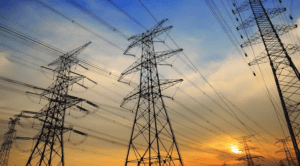
The European Union will be able to double the export of Ukrainian electricity this week, European Energy Commissioner Kadri Simson said at a press conference in Brussels on Tuesday after an informal meeting of EU energy ministers with their Ukrainian counterpart Herman Galushchenko on the sidelines extraordinary meeting of the EU Energy Council.
“If commercial electricity trading helps Ukraine offset some of the revenue losses, then this is the way forward. We are not waiting for any specific technical conditions to start trading. Trading is already underway,” she stated.
The European Commissioner recalled that the Ukrainian and Moldovan power transmission networks “were synchronized with the European one in record time.”
“I will continue to support the next step of a full-fledged electricity trade with Ukraine. The first commercial cross-border electricity exchange began at the end of June with Romania, and with Slovakia in July. At the moment, the trading capacity is 1,500 megawatts. But European transmission network operators meet on this week and will discuss doubling this amount,” Simson said.
In this regard, the European Commissioner opined that “by doing so, we will also be able to compensate for some of the production of capacities that here in the EU must be produced with gas, most likely gas from Russia.”
“These are mutually beneficial actions. But our cooperation in the future is not only electricity and gas, but you can expect that soon we will be ready to announce future cooperation in the field of clean gases, renewable gases. This is a market that will develop in Europe, and Ukraine has great opportunities to become our trading partner in the coming years,” she explained.
Simson also said that the EU-Ukraine High Level Energy Market Integration Panel will resume work in September, “accelerating the necessary reforms.” “This will be even more important, since Ukraine now has the status of an EU candidate with a clear European perspective,” the European Commissioner said.
In addition, she noted that Ukraine has the largest gas storage facilities in Europe. “And it’s in our joint interest to use them for security purposes,” Simson said.
For his part, Minister of Energy of Ukraine German Galushchenko noted that Ukraine has the ability to store more than 12 billion gas for European companies in its underground gas storage facilities “in fairly safe places.”
Galushchenko stressed that the Ukrainian gas transportation system could guarantee gas supplies at the level of those volumes that are transported to Europe through Nord Stream 1, “if the Russians close it.”
“Even during the war, we ensured the security of supplies of those volumes that go through the Ukrainian pipeline, and this was our obligation to our European partners. We are fulfilling this obligation,” the Minister of Energy stressed.
As for the export of Ukrainian electricity, according to him, today it is a direct replacement for Russian gas.
“Today we export 100 MW to Europe. But technically we could already increase it to 1.5-1.7 thousand MW, realizing that this can replace up to five to six billion cubic meters of Russian gas with Ukrainian electricity,” he said.
In addition, Galushchenko focused on the behavior of the Russian invaders at the site of the Zaporozhye nuclear power plant.
“What they are doing there is called nuclear terrorism. And therefore, we must be aware that in the 21st century, only one country can behave like a terrorist. And this is a matter of nuclear security. This is not only a matter between Ukraine and Russia, this is a question of the whole world,” the head of the Ministry of Energy stressed.
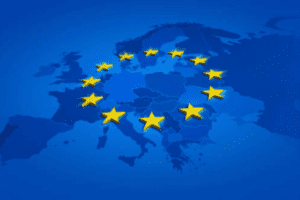
The European Union intends to adapt its trade policy to the rapidly changing geopolitical landscape, focusing on relations with America, but also taking into account the importance of engagement with China.
“Russia’s ongoing aggression against Ukraine is the main, but not the only, factor causing this recalibration,” European Commission (EC) Executive Vice President Valdis Dombrovskis said at a press conference on Friday following a meeting of EU trade ministers.
He noted that the European Union continues to provide the necessary support to Ukraine, “making every effort to further isolate Russia.”
He believes that the situation in Ukraine has set a new goal – focusing on transatlantic relations. “And we have made significant strides forward in recent months,” Dombrovskis said, referring to the results of the recent meeting of the EU-US Trade and Technology Council (TTC).
According to him, the main conclusion of the TTC was that the key is to remove trade barriers and prevent the emergence of new ones.
“We will also be looking at building more sustainable supply chains for semiconductors. The same goes for critical raw materials, where we are exploring the so-called “friend-shoring” concept,” the European official said.
Among other examples, he named the joint work with the Americans on the standard of chargers for electric vehicles.
Prospects for trade and investment relations between the EU and China, Dombrovskis said, should be viewed against the backdrop of both geopolitical shifts and new challenges to the global economic environment.
“In general, it is clear that the relationship between the EU and China is becoming more complex. But there was also a clear view that engagement with China is important,” he said.
Dombrovskis said the EU would be the strongest supporter of WTO reform. Its trade agreements with external partners should help diversify supply sources and create export opportunities.
“Accordingly, we must seek (within the EU) a new consensus on how to advance our bilateral partnership: it is clear business as usual is not an option,” he said.
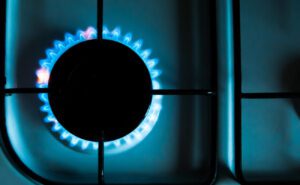
The European Union has developed a plan to phase out Russian gas, EU Commissioner for the Internal Market Thierry Breton said on the Europe 1/CNews TV channel, ZN.ua reports.
“We import 155 billion cubic meters a year from Russia. We will have to get rid of Russian gas… Putin is using gas to divide us, he has done everything for many years to divide Europe,” Breton said.
In 2021, about 45% of EU natural gas imports came from Russia.
According to the European Commissioner, it is necessary to quickly abandon the import of Russian gas. In particular, the EU plans to increase purchases of liquefied natural gas from the US and Qatar, as well as expand the capacity of green energy.
“We developed a plan with my teams,” Breton said.
The new plan will include “50 billion cubic meters of liquefied natural gas imports from the US or Qatar, an additional 10 billion from existing pipelines, acceleration of offshore wind turbines and photovoltaic panels totaling 25 billion cubic meters,” he said. Restarting coal-fired power plants is also an option under consideration.

In response to Ukraine’s request for the evacuation of patients in need of medical care and forced to leave the country due to the war unleashed by Russia, the European Union is coordinating the relevant work, as well as financing the medical aircraft involved in the transportation.
Balazs Ujvari, representative of the European Commission, announced this on Monday in Brussels.
“As the war continues and people continue to leave the country, health care systems in neighboring countries are under significant strain in Poland, Slovakia, Moldova. For the evacuation of patients in need of medical care, Ukraine requested assistance from the EU. In response, the EU coordinated the evacuation of nearly 200 people through the EU Civil Protection Mechanism to eleven European countries. The first RESCEU medical evacuation aircraft funded by the EU has been operational since March and is being accepted by Norway, a member state of the EU Civil Protection Mechanism,” he said.
Ujvari also listed the countries that accept Ukrainian patients. These are Germany, Ireland, Italy, Norway, Denmark, Sweden, Romania, Luxembourg, Belgium, Spain and Portugal.
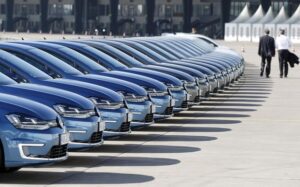
Car sales in the European Union in March fell by 20.5% compared to the same month in 2021, the European Automobile Manufacturers Association (ACEA) said in a statement.
Negative factors for the market are the ongoing disruptions in supply chains due to the war between Russia and Ukraine.
According to ACEA, the number of cars registered last month in the EU countries (excluding Malta, for which statistics are not available) amounted to 844.187 thousand against 1.063 million in the same month a year earlier. All four of the region’s largest markets posted double-digit declines: Spain – 30.2%, Italy – 29.7%, France – 19.5%, Germany – 17.5%.
The number of new car registrations in Europe (EU countries plus Iceland, Norway, Switzerland and the United Kingdom, which left the European Union on January 31, 2020) fell by 18.8% in March to 1.127 million.
Sales of the Volkswagen group (including Skoda, Audi, Seat, Porsche, etc.) decreased by 24.3% last month, Stellantis (combined by Fiat Chrysler and PSA Group) – by 32.9%, BMW – 20.5%, Mercedes -Benz – 13.6%.
Realization of cars of Renault group decreased by 14.1%, at the same time cars of Lada jumped by 35.3% (up to 211 cars).
Japanese Toyota reduced sales by 12.2%. South Korean Hyundai increased them by 0.5%, Japanese Honda and Mazda – by 21.7% and 5.5% respectively.
In the first quarter, car sales in the European Union fell by 12.3% compared to the same period in 2021 (to 2.246 million), in Europe as a whole – by 10.6% (to 2.753 million).